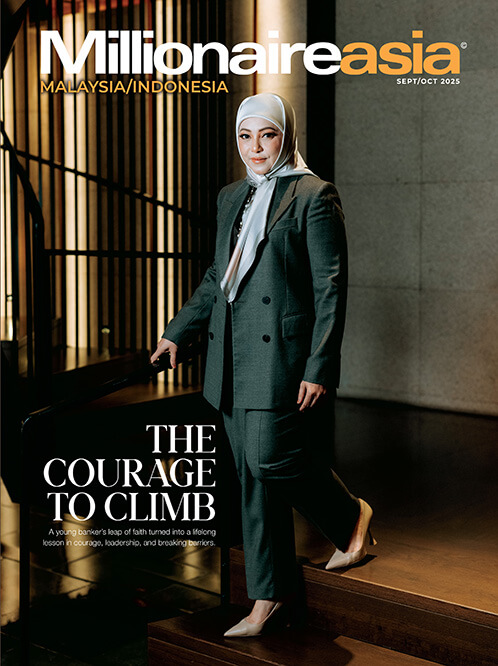In a democracy as vibrant as Indonesia’s the 2024 East Java gubernatorial election stood out as a political showdown that will go down in the history books. It wasn’t just another regional contest – it was the battle of the three “srikandi”.
With three women vying for the top seat in Indonesia’s second-largest voting province, where respect for culture and tradition still runs deep, the election brought the srikandi of Javanese mythology to life and captured public imagination. Srikandi, a revered heroine and warrior figure known for courage, wisdom and fighting for people’s rights, is a symbol of female empowerment.
And as for the first time ever in Indonesia’s democratic history, an all-women contest for the a top regional leadership role unfolded, the myth of the srikandi came to life.
The three srikandi in the spotlight
A wave of excitement surged through the Dyandra Convention Center in Surabaya, as the stage was set for the second of three crucial public debates in the race for East Java’s top office. The air was electric, with three distinct camps rallying behind their respective candidates.
The slogans were unapologetically feminist: “Bunda kerja nyata (Mother’s putting in real work)”; “Emak-ku juara (My mom is a champion),” and “Mbakyu-mu solusimu (Your sister is your solution)”.
All three candidates for the province’s top role were women – marking a the first time Indonesia has ever seen an all-female showdown for the role of a regional leader.
And they were all leaders in their own right who had left their mark on both local and national leadership, as well as on society.
Defending her seat was Khofifah Indar Parawansa – the incumbent governor of East Java known for her sharp political instincts and policy depth – and a former Minister of Social Affairs.
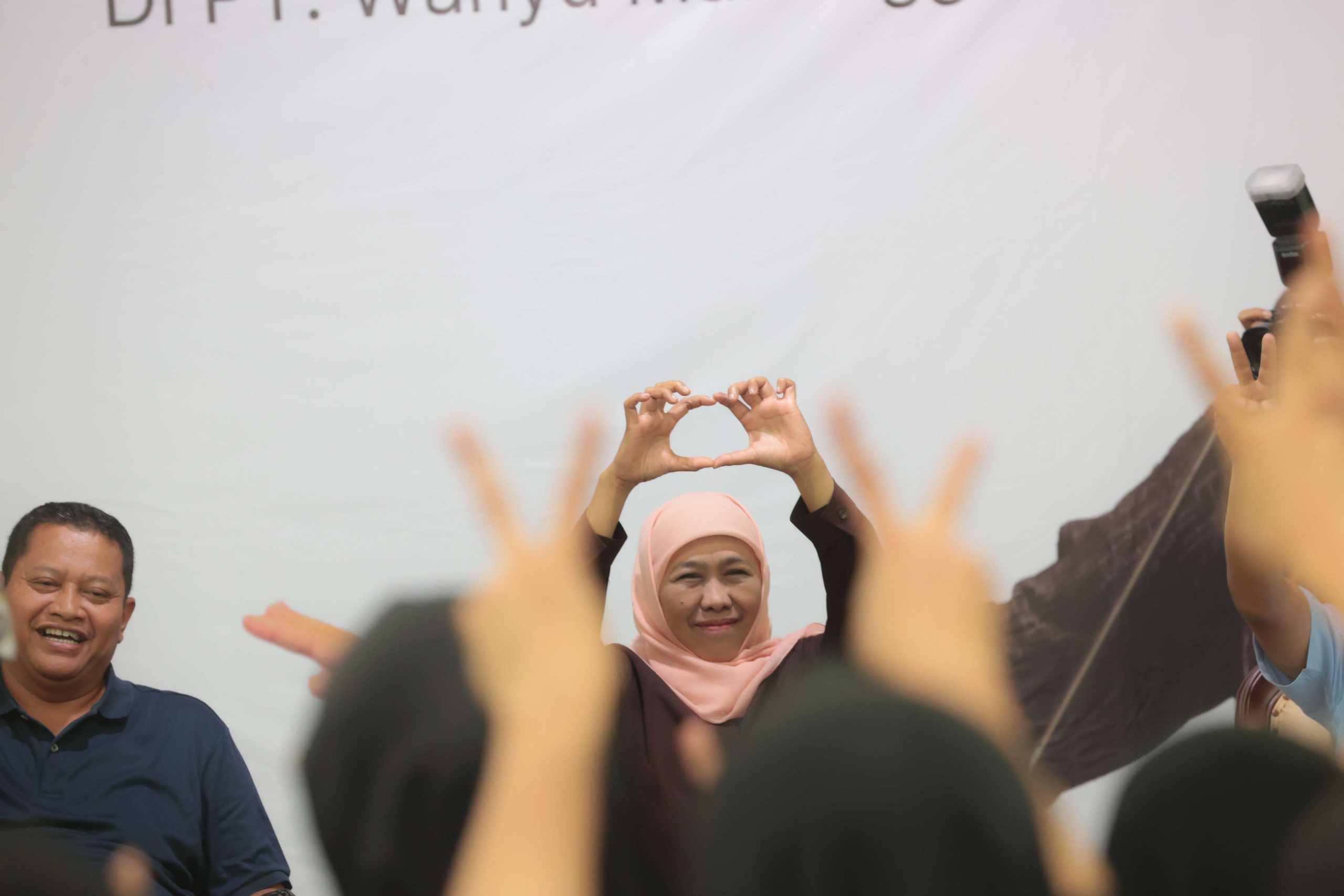
Then there was Luluk Nur Hamidah, an activist with a passion for justice and equality, and a former member of Indonesia’s parliament.
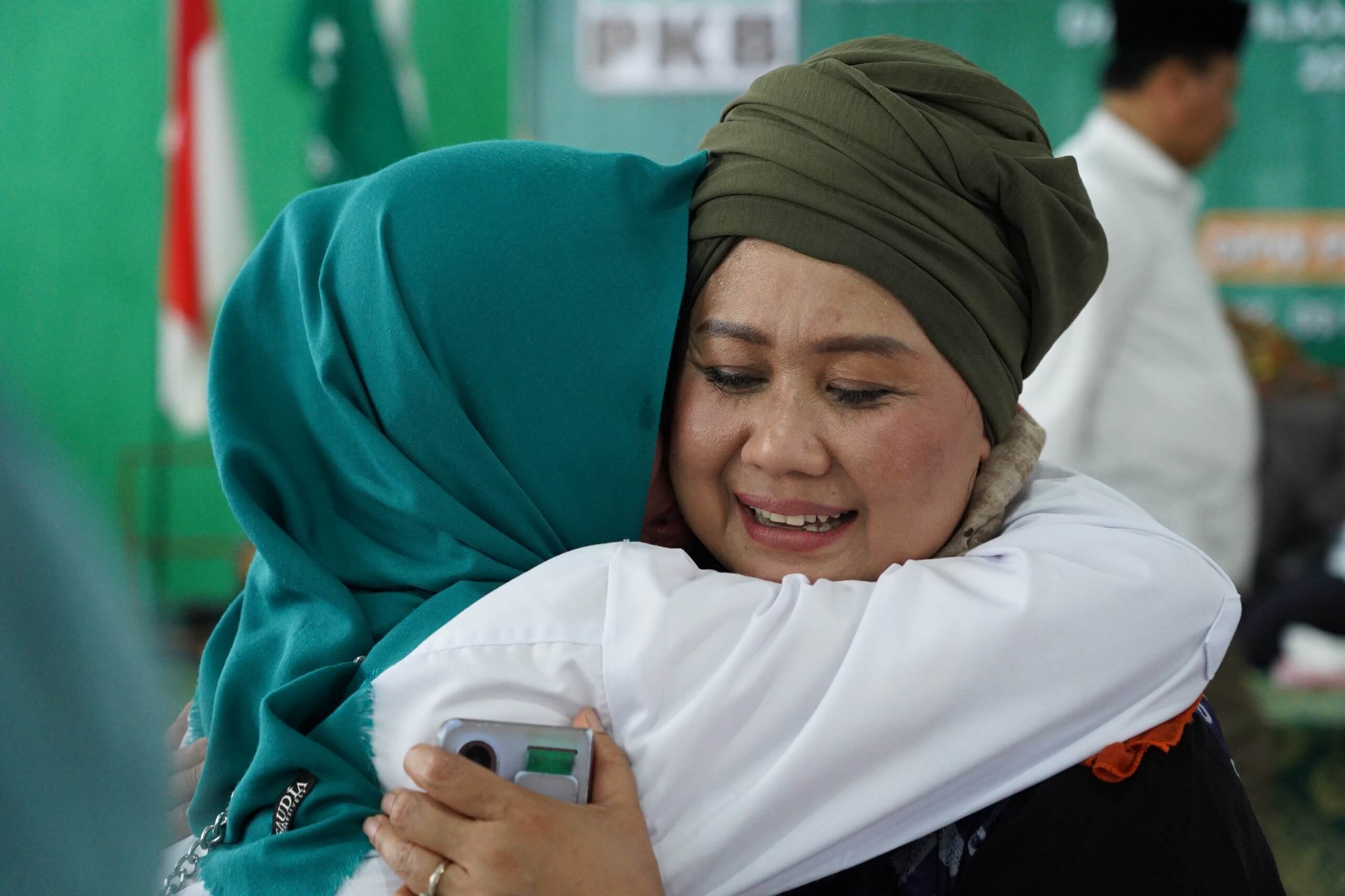
And rounding out the competition was Tri Rismaharini, the former mayor of Surabaya with a track record of transformative infrastructure projects, and yet another former Minister of Social Affairs.
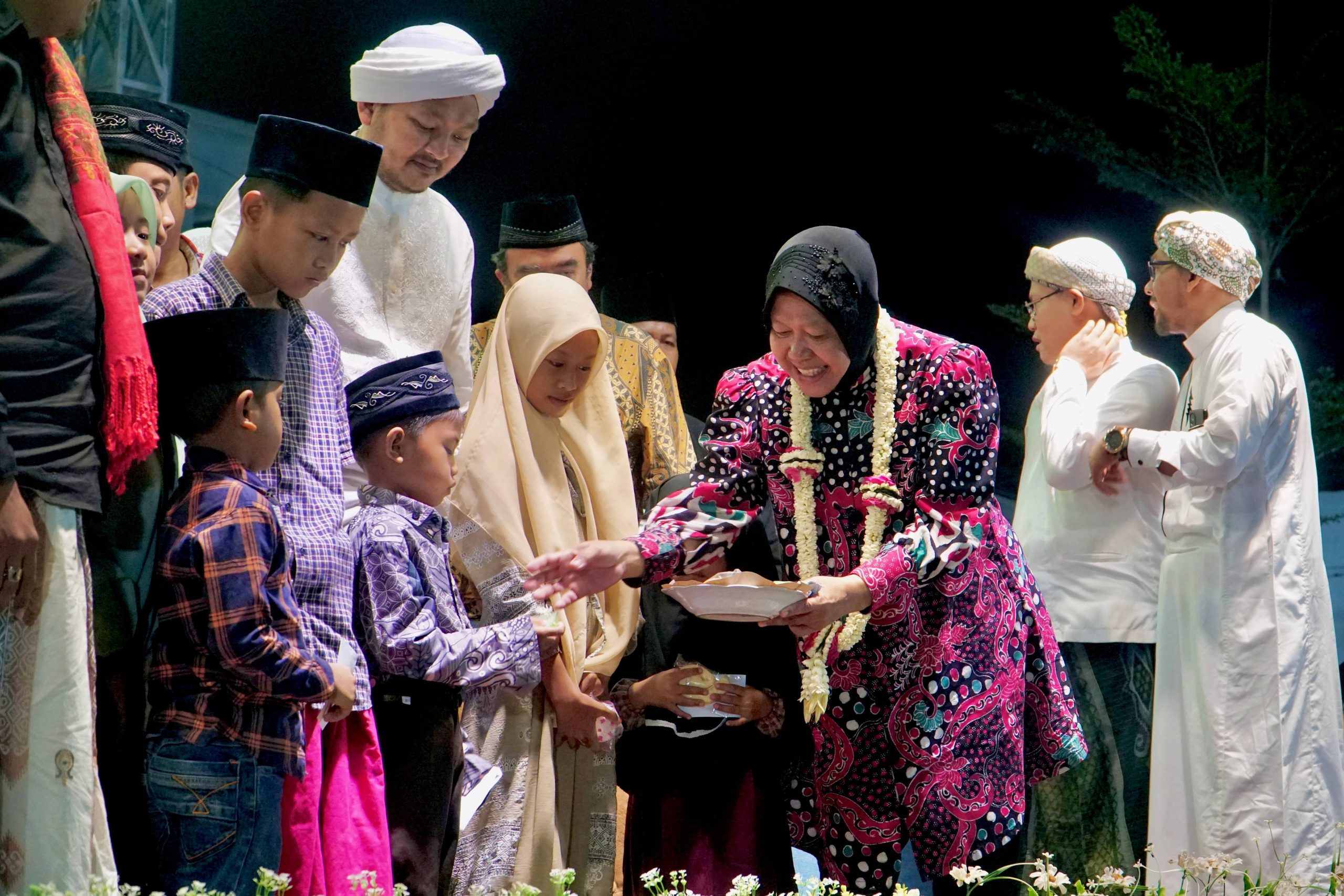
Candidates took to the streets in the lead-up to the 27 Nov 2024 election passionately delivering their visions for the province’s future.
For two intense months, East Java buzzed with campaign energy. From bustling urban centers to quiet rural districts, the candidates crisscrossed the region, each delivering a unique vision for the province’s future.
Tri Rismaharini, for example, emphasised the urgent need for infrastructure development, particularly in East Java’s remote areas. She proposed building tunnels to ease the mountainous roads between Jember and Banyuwangi – a project she deemed essential for improving connectivity. During her time as Surabaya’s mayor, she had constructed a subterranean public square, a project that had won the admiration of Surabaya’s residents.
Incumbent Khofifah focused on economic empowerment, promising subsidies for fishermen to improve their livelihoods. Her idea of subsidising fuel for the nearly two million fishermen in East Java was a hit with the region’s coastal population. However, some critics questioned why this policy hadn’t been implemented during her first term in office.
Meanwhile, Luluk shone a light on the stark development disparities within East Java. She highlighted in particular the poverty and underdevelopment of Madura Island, offering solutions to lift the island’s residents out of poverty and improve education.
 A landslide win for the incumbent
A landslide win for the incumbent
On 27 Nov 2024, as East Java shifted from the intense heat of the dry season to the refreshing showers of the rainy season, at Khofifah’s campaign headquarters on Diponegoro Street in Surabaya, a wave of excitement and relief came over the incumbent’s team.
By 3pm, the first quick count results began to pour in, and it was clear that Khofifah, alongside her running mate Emil Dardak, was heading for a landslide victory.
With 57 per cent of the projected votes, she outpaced her closest rival, Tri Rismaharini and her partner Zahrul Azhar Asumta, who garnered 36 per cent. Luluk Nur Hamidah and Lukmanul Hakim trailed far behind with only 7 per cent.
As the day wore on, the mood in Khofifah’s headquarters became increasingly jubilant. Supporters cheered, prayers filled the room, and the ceremonial tumpeng – a traditional rice cone – was cut in celebration.
“We are grateful for whatever percentage the result is, as it reflects the hard work of all parties who have put in their utmost effort, carrying various open and closed elements, all striving together to maximise support, leading to the vote tally for us,” Khofifah told MillionaireAsia.
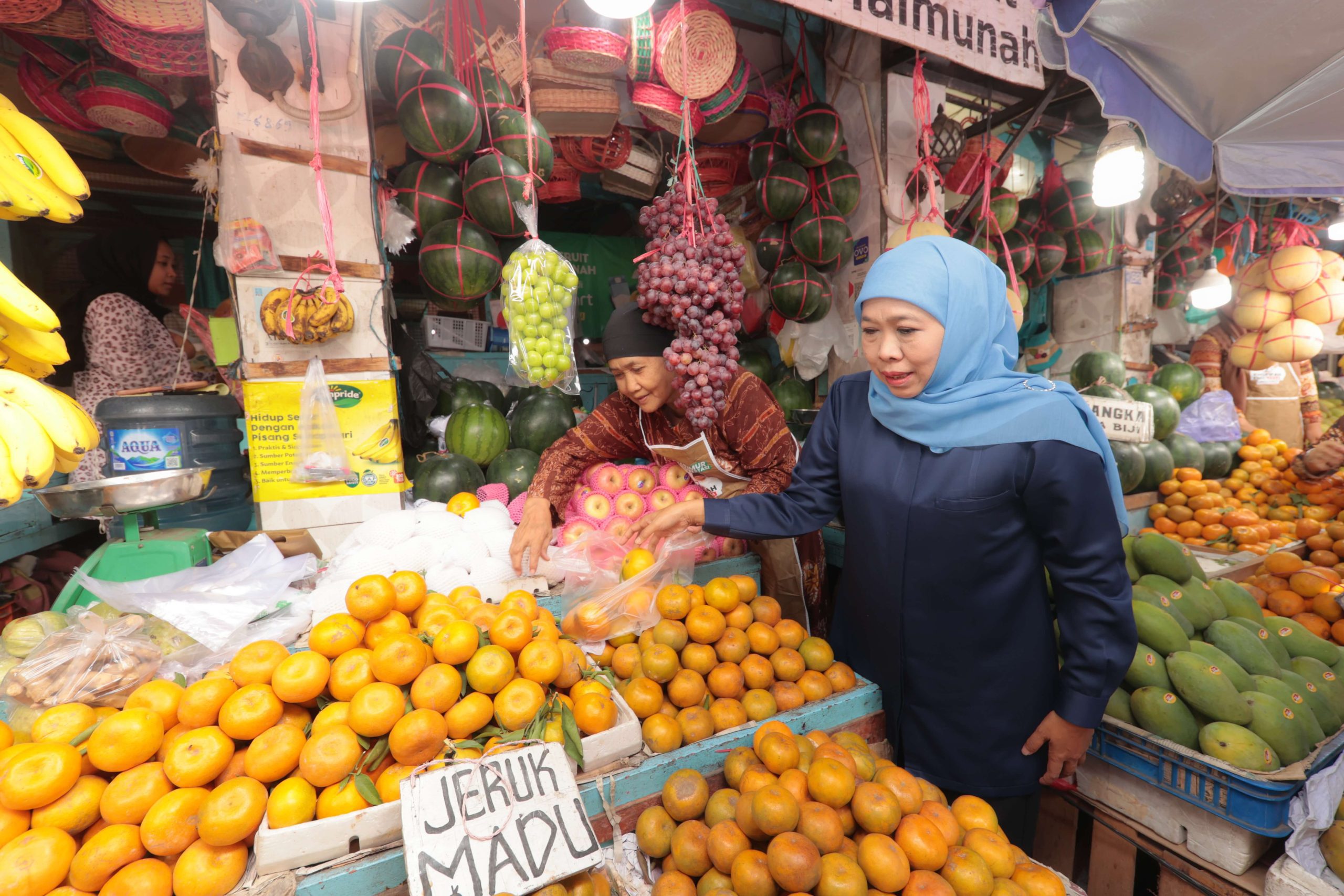
Official results released by the General Elections Commission on 9 Dec confirmed what was already apparent: Khofifah’s triumph was indisputable.
She had secured a stunning 12.19 million votes – more than double the number of votes received by her competitors.
The results spoke volumes about the public’s assessment of Khofifah’s first term in office. Her landslide victory was a powerful statement from the people of East Java: they were satisfied with her leadership and eager to see more of what she could offer in her second term. It was a resounding endorsement of her past work and the future she promised.
And the contest itself wasn’t just a personal triumph for Khofifah: it was an extraordinary moment of having three women, each with their own vision for the future, compete for the province’s highest office.
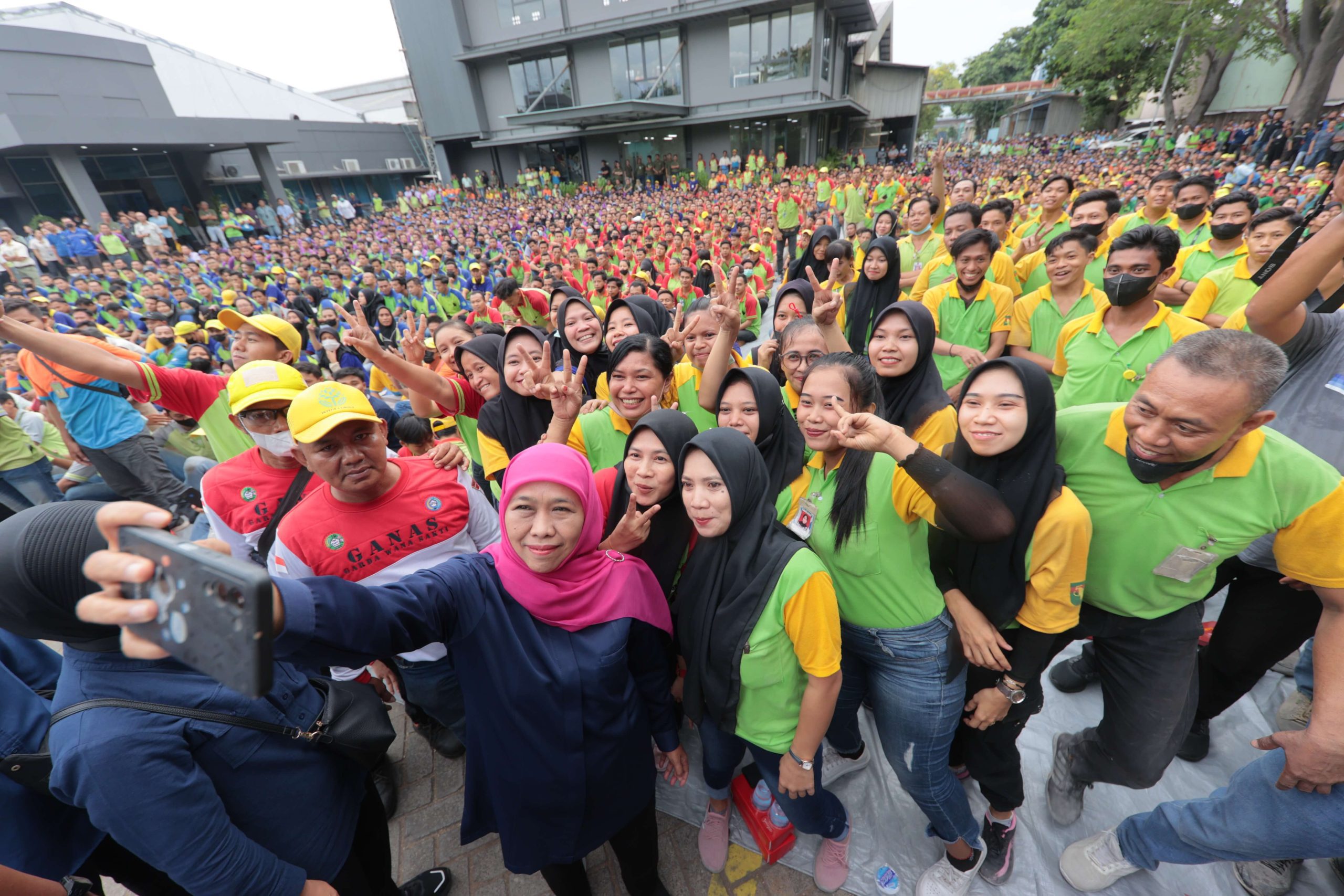
Women on top
East Java – one of Indonesia’s most important provinces – is no stranger to women in charge.
“East Java has a cultural history of accepting female leaders,” noted Surokim Abdussalam, a political science lecturer at Trunojoyo University in Madura. “The region’s roots run deep in the Majapahit Kingdom, where women like Queen Tribuana Tungga Dewi ruled with wisdom and strength.”
Queen Tribuana Tungga Dewi, who reigned over Majapahit for over two decades in the 14th century, was a powerful symbol of female leadership, uniting the archipelago in a time of political and cultural consolidation.
East Java is not just any province in Indonesia – it’s the second-largest in terms of voters, holding the key to nearly 31 million votes.
Surokim pointed out the immense significance of East Java in Indonesia’s political landscape: “East Java’s political dynamics are pivotal to national elections. The future governor of East Java could influence not just regional politics, but also the presidential election.”
So, when three women face off for the coveted position of governor in 2024, it’s not just a shift in local politics. It’s a landmark moment for Indonesian society at large.
In a nation still grappling with gender inequality, East Java’s openness to female leadership speaks volumes. This is a province where traditional cultural values meet modern political aspirations, and where women have risen not just as political figures, but as powerful agents of change.
Having women in charge here is no small feat – it reflects an evolving attitude towards gender roles in an at times still conservative and religiously-rooted society.
This shift has ripple effects beyond East Java’s borders. If these women can succeed in this crucial province, it sends a powerful message to Indonesia at large: gender equality in political leadership isn’t just a distant ideal – it’s an achievable reality.
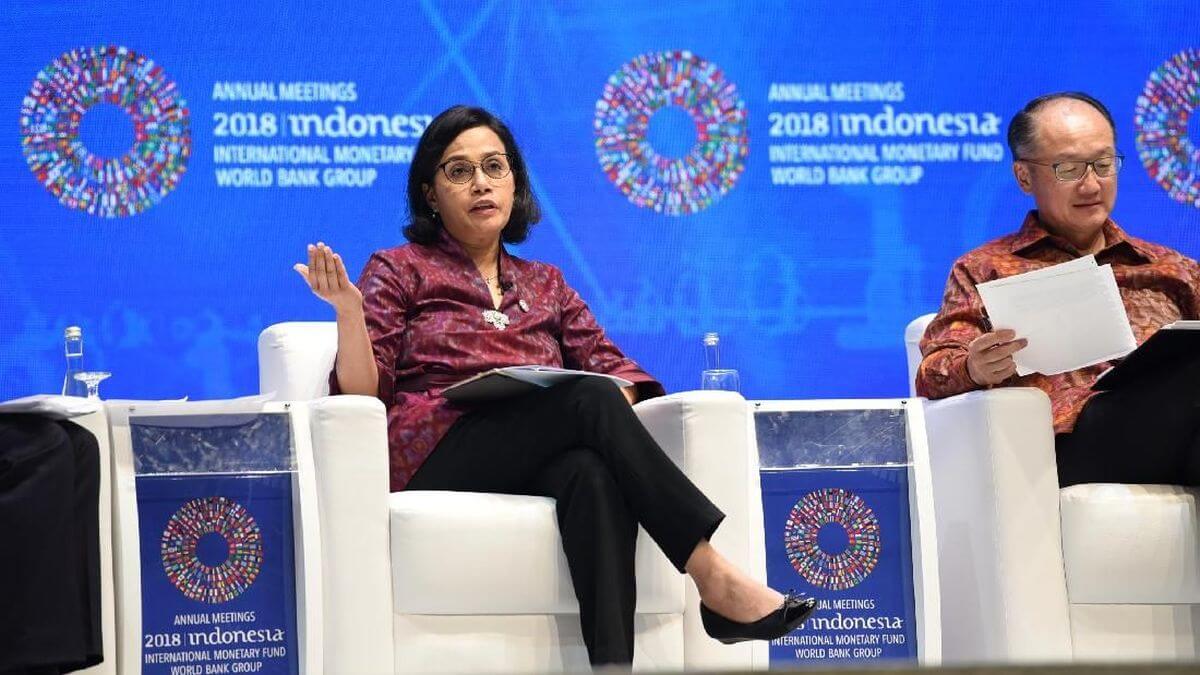
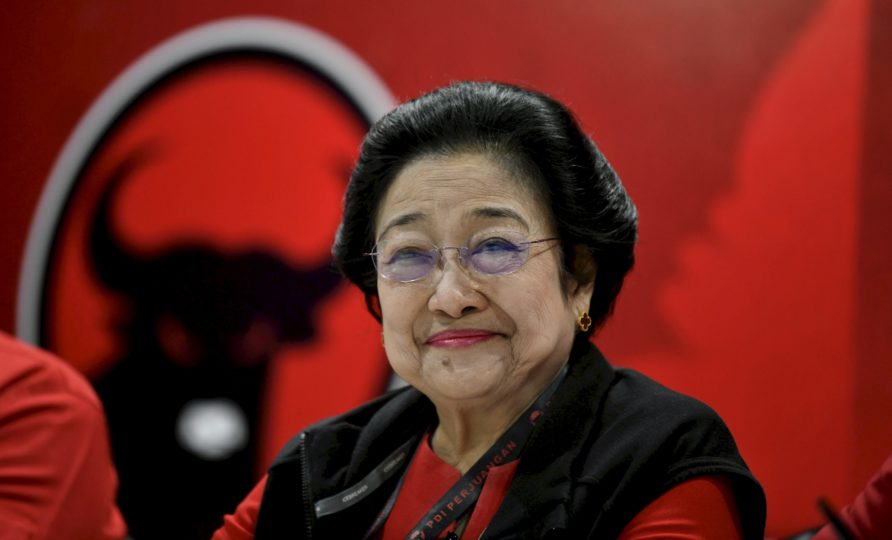
In Indonesia, women have made significant strides in various sectors, but political leadership has remained a male-dominated arena. There have been some women power players, including Indonesia’s first female president Megawati Soekarnoputri, and Finance Minister Sri Mulyani.
Despite the gains made by these heavyweights, women remain underrepresented in key decision-making roles in Indonesia. Women hold just 20 per cent of parliamentary seats in the country, and they hold fewer than 10 per cent of regional executive positions such as governors and mayors across Indonesia.
The 2024 East Java race could provide the momentum needed to change that statistic.
It challenges the nation to reimagine what female leadership looks like, not only in provincial politics but at the highest levels of government, and analysts hope it will inspire future generations of women to step into positions of power without fear.
East Java’s three srikandi have rewritten the narrative, proving that in East Java, the glass ceiling isn’t just cracked – it’s shattered.
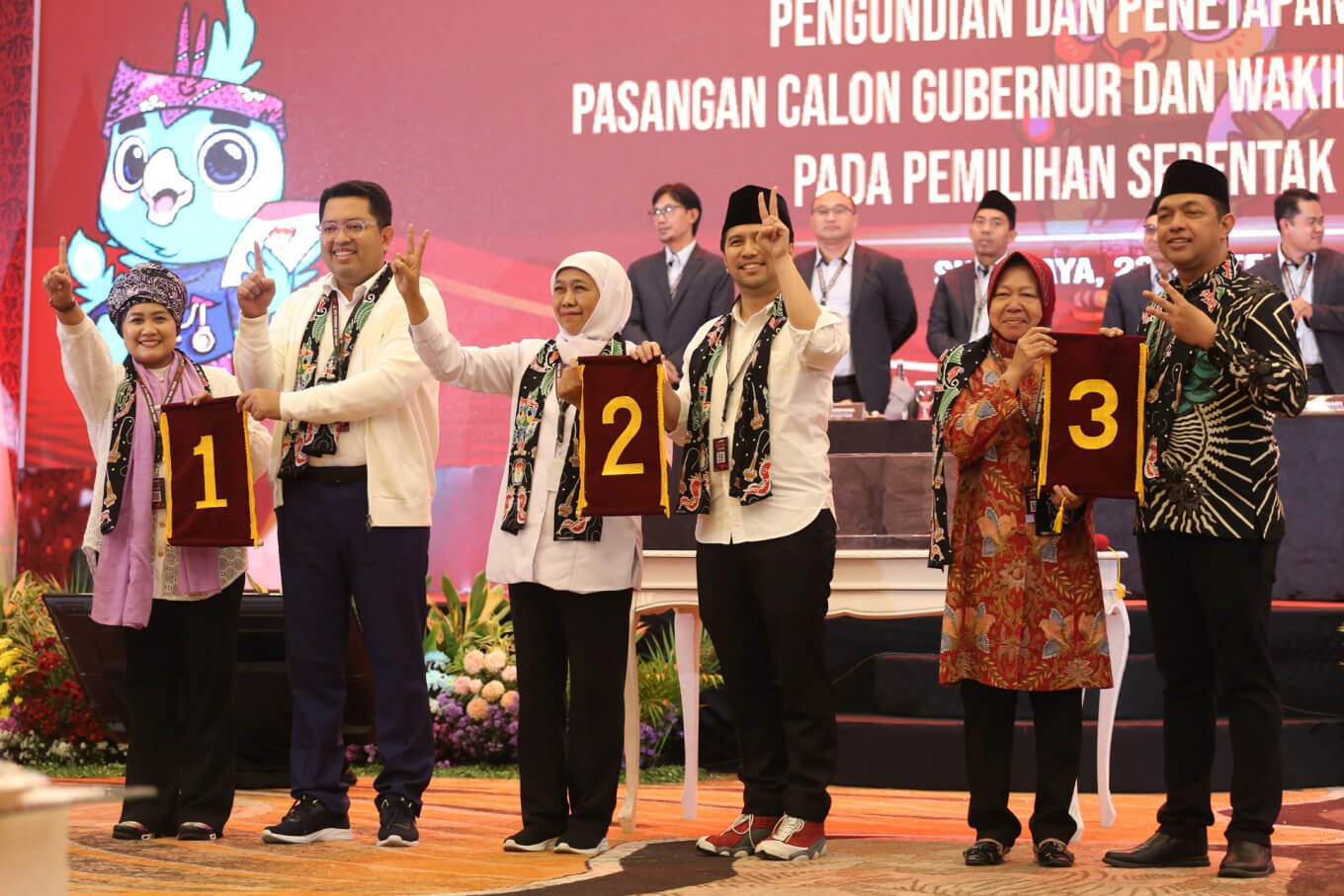
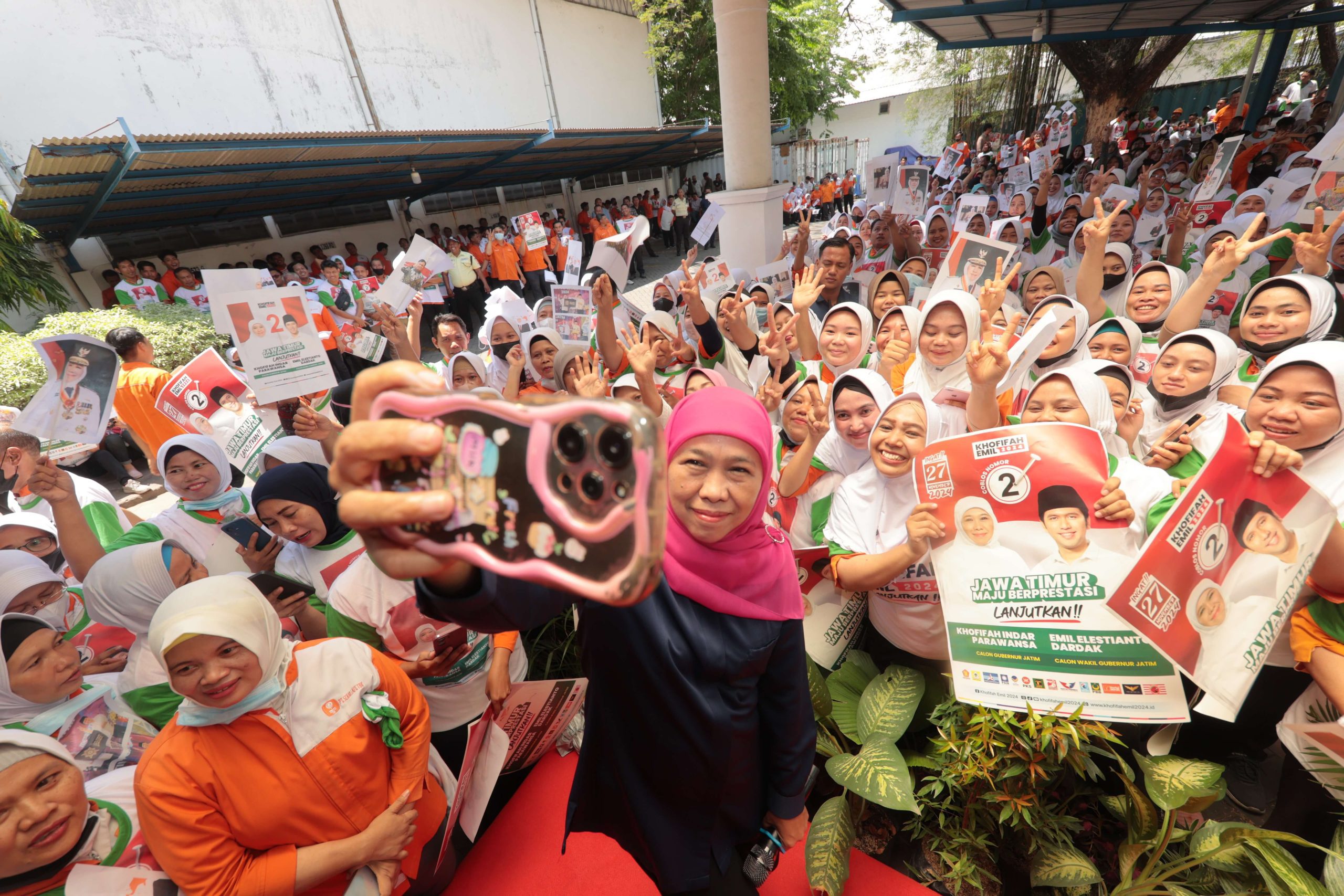 A landslide win for the incumbent
A landslide win for the incumbent